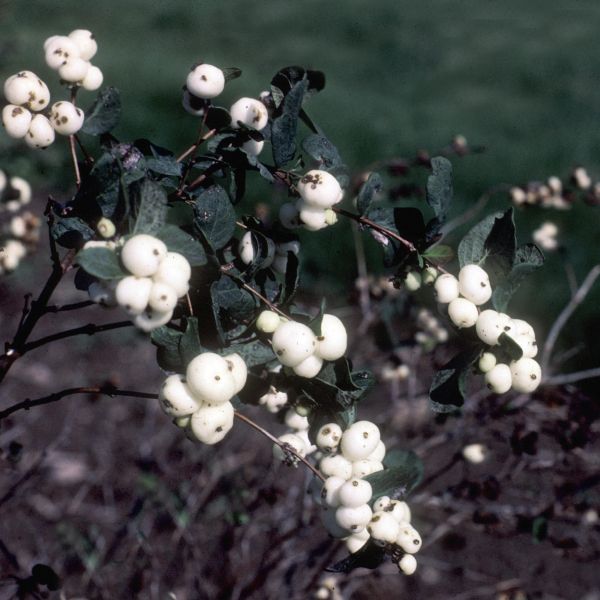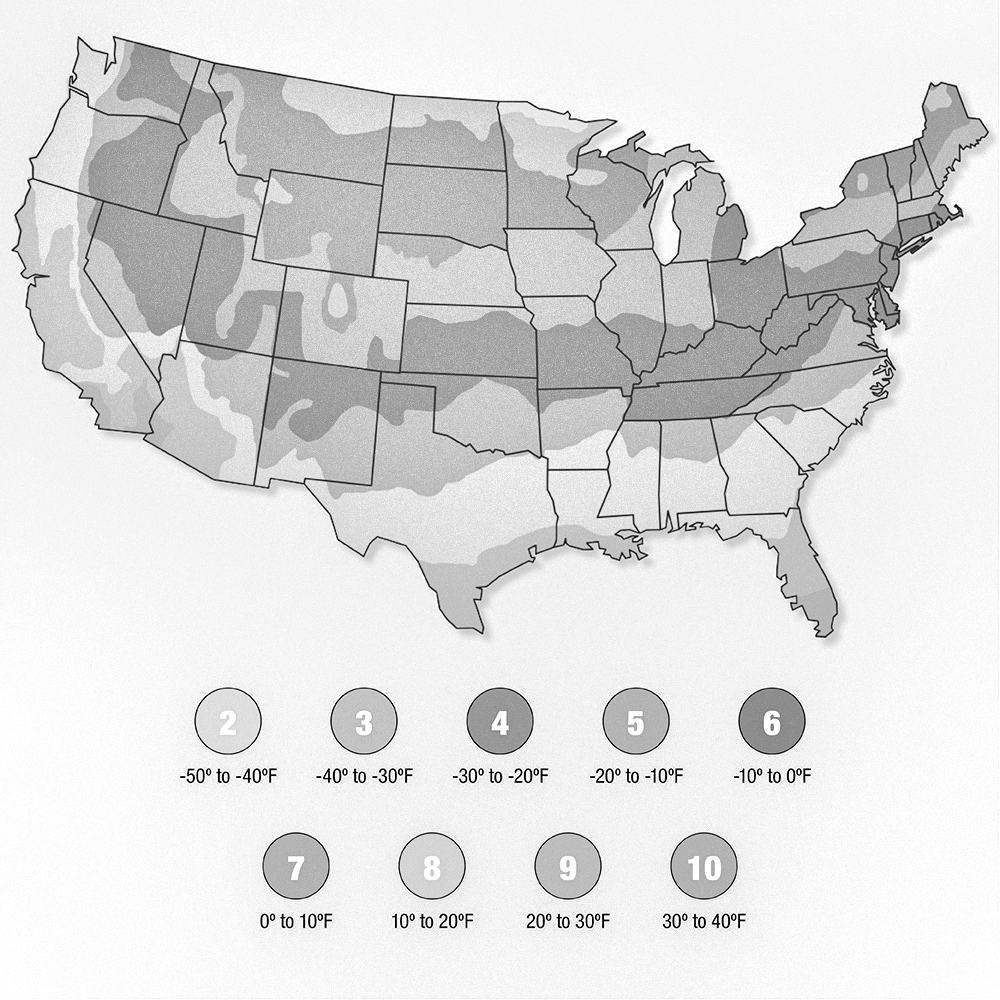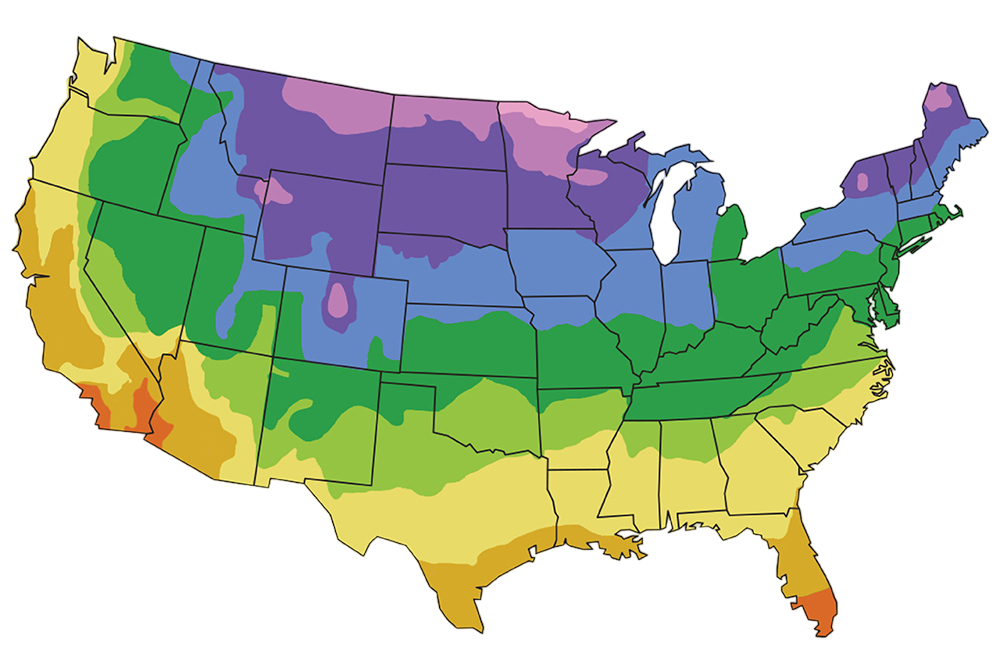


White Snowberry
Symphoricarpos x doorenbosii 'White Hedge'
89 reviews
White Snowberry
Symphoricarpos x doorenbosii 'White Hedge'
89 reviews
3.5 Gallon
We are sorry, product is currently out of stock due to seasonal availability. Please check the "Related plants available in your area" section below
Not just beautiful - intentionally selected by ShrubHub's 3D landscape design team to fit real-world spaces and maximize yard potential.
Why White Snowberry?
White Snowberry (Symphoricarpos x doorenbosii 'White Hedge') is a hardy deciduous shrub with an upright growth habit that reaches up to six feet tall and wide. It is notable for its clusters of small, white, bell-shaped flowers that bloom in early summer and its white, round berries that persist through the winter. This shrub is a great ornamental choice for adding year-round interest to hedges, borders, and mixed gardens. It prefers full sun to partial shade and well-drained, moist soil.
Sunlight
The White Snowberry plant typically requires full to partial sunlight for optimal growth.
Watering
White Snowberry plants require regular watering, especially during their first year of growth. It is essential to keep the soil consistently moist but not waterlogged. Adequate watering ensures healthy growth and development of the plant.
Fertilizing
White Snowberry shrub requires a well-drained soil with moderate fertility. It benefits from an application of a balanced slow-release fertilizer in early spring. Excessive fertilization should be avoided to prevent excessive vegetative growth and promote
White Snowberry: A Completely Genuine Expression of Glamor
Imagine spreading drops of ethereal charm throughout your entire landscape design. A magical deciduous shrub, the White Snowberry (Symphoricarpos x doorenbosii 'White Hedge') is an exceptional plant that emanates freshness, vibrancy, and elegance. Exploding interesting-looking berries, the White Snowberry gifts your space timeless glamor, boosts your home’s curb appeal, and serves as a great investment.
Hardy in USDA growing zones 4 to 7, the White Snowberry is a deciduous shrub that reaches a mature size of 4 to 5 feet in height and 3 to 5 feet in spread, thrives best in full sun to partial shade, and prefers moderate moisture soil.
If multi-faceted compelling beauty is your thing, you can’t go wrong with White Snowberry because every single detail on this plant is a separate piece of art! A showpiece shrub, the White Snowberry boasts clusters of bell-shaped pink flowers that are further complemented with blue-green leaves, adding tons of visual interest to the scene and summoning a sweet, laidback look to your garden.
Another winning feature here is the incredible snow-white berries. Just like pure white cotton balls gracefully floating in the air, these berries pop up on the arching branches against dark green leaves, lending your space some bright and playful aesthetics with a hint of uniqueness. After all, you don’t come across such a gripping beauty quite often!
Pollinator and bird-friendly, the White Snowberry does wonders for your outdoor space when planted in masses for an expressively dramatic effect or in mixed shrub borders for a cheery glow-up and a dollop of unmatched beauty.
A lackluster garden will look a lot better when accentuated with the soothing presence of a White Snowberry!
Order yours from ShrubHub now!
Plant Information:
| Botanical Name: | Symphoricarpos x doorenbosii 'White Hedge' |
| USDA Zones: | 4 - 7 |
| Water: | Moderate |
| Exposure: | Full Sun |
| Soil Needs: | Widely Adaptable |
| Mature Height: | 4 - 5 feet |
| Mature Spread: | 3 - 5 feet |





Pollination Info
Pollination Info for White Snowberry (Symphoricarpos x doorenbosii 'White Hedge')
White Snowberry (Symphoricarpos x doorenbosii 'White Hedge') is a deciduous shrub that produces small pink flowers in the summer followed by white berries in the fall. It is an ornamental plant that is commonly used in landscaping and garden designs. The plant is self-fertile, meaning that it can produce fruit without cross-pollination, but it can benefit from cross-pollination by insects like bees and butterflies.
Pollination Process
The white snowberry plant has perfect flowers, meaning that it has both male and female reproductive organs. However, it is not self-pollinating, and requires external pollination to produce fruit. The process of pollination involves transferring pollen from the anther (the male reproductive organ) to the stigma (the female reproductive organ) of the flower.
Pollination by Bees
Bees are the primary pollinators of white snowberry plants, as they are attracted to the nectar and pollen of the flowers. When the bees land on the flowers, they brush against the anthers and pick up pollen on their bodies. As they move from flower to flower, they transfer the pollen to the stigmas, allowing the plant to produce fruit.
Pollination by Butterflies
Butterflies can also pollinate white snowberry plants, though they are not as effective as bees. Unlike bees, butterflies only visit flowers for their nectar and do not actively collect pollen. As they move from flower to flower, they may accidentally brush against the anthers and pick up pollen, which can then be transferred to the stigmas of other flowers.
Conclusion
White snowberry plants are self-fertile but can benefit from cross-pollination by bees and butterflies. The pollination process involves transferring pollen from the anthers to the stigma of the flower. Bees are the primary pollinators of white snowberry plants because they actively collect nectar and pollen from the flowers, while butterflies may accidentally transfer pollen as they move from flower to flower.
FAQ
White Snowberry (Symphoricarpos x doorenbosii 'White Hedge') FAQs:
- What is White Snowberry?
White Snowberry (Symphoricarpos x doorenbosii 'White Hedge') is a deciduous shrub that grows up to 6 feet tall and wide. It is known for its delicate pink flowers that bloom in late spring, followed by white, waxy berries that last throughout the winter.
- What are the growing requirements for White Snowberry?
White Snowberry thrives in full sun to partial shade and well-drained soil. It is a hardy plant that can tolerate drought, but it prefers moist soil. Pruning should be done in late winter or early spring to encourage new growth.
- What are the best uses for White Snowberry in the landscape?
White Snowberry is a popular choice for hedges, screens, or backups for perennial borders. It is also commonly used in wildlife gardens or habitats, as the berries attract birds and other small animals.
- How do I propagate White Snowberry?
White Snowberry can be propagated through seeds, cuttings, or by division. Seeds should be planted in the fall and left to stratify over the winter. Cuttings should be taken from semi-hardwood in late summer. Division should be done in early spring when the plant is still dormant.
- What are some common pests or diseases that affect White Snowberry?
White Snowberry is relatively resistant to pests and diseases, but it may be susceptible to aphids, spider mites, or powdery mildew. These issues can usually be prevented by maintaining proper growing conditions and monitoring the plant regularly.
- When is the best time to prune White Snowberry?
Pruning should be done in late winter or early spring, before new growth has started. This will encourage the plant to produce new and stronger canes, which will result in a healthier and fuller plant.
- How often should I water White Snowberry?
White Snowberry prefers moist soil, but it can tolerate drought. It is important to not overwater the plant, as this can lead to root rot. Water regularly during the first year after planting, and then as needed based on the climate and soil conditions.
Planting & Care
Planting & Care for White Snowberry (Symphoricarpos x doorenbosii 'White Hedge')
Planting:
- Choose a planting location that receives full sun to partial shade.
- Ensure the soil is well-drained, and amend with organic matter if necessary.
- Dig a hole that is twice as wide and deep as the root ball of the plant.
- Place the plant in the hole, backfill with soil, and water thoroughly.
- Space plants at least 3-4 feet apart to allow for proper growth.
Care:
- Water regularly, especially during dry periods, to keep the soil moist but not waterlogged.
- Mulch around the base of the plant to help retain moisture and suppress weeds.
- Fertilize in early spring with a balanced fertilizer, and again in late summer with a low-nitrogen fertilizer.
- Prune in early spring to remove any dead, damaged, or diseased branches.
- White Snowberry is generally pest and disease resistant and low-maintenance, but keep an eye out for powdery mildew and aphids.
Check Out These Verified Customer Reviews:
Customer Reviews
4.7 out of 5 based on 89 reviews
Thank you! Your review has been submitted.
The item was exactly as described and looks beautiful in my home.
Website was easy to navigate and ordering process was smooth.
Quick shipment, great customer service.
Item has been added to your cart.


